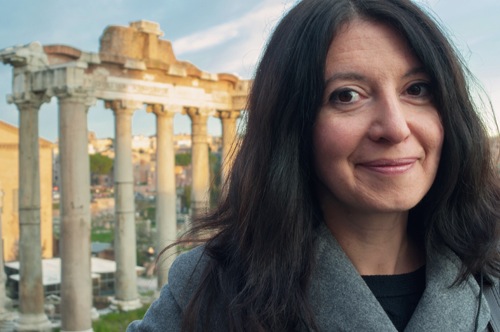Local Secrets, Cultural Immersion And Going Beyond The Guidebook In Rome, Italy

Roman musician. Photo courtesy of Moyan Brenn.
Thinking about visiting Rome, Italy? Epicure & Culture caught up with Marisa F, a private local guide in Rome, to get the scoop on where to eat, how to assimilate into local culture and ways to travel responsibly through the city. By the end of this guide, you'll be ready to take a delicious and culturally immersive trip to Rome.
1. For those wanting to have a Rome experience not typically found in guidebooks, visit the popular district of the Garbatella, founded in 1920. Inspired by the concept of the "Garden City", Garbatella was the location for many Italian movies and is considered by many the "real Rome," still genuine and working-class. Here you can admire many murals and amazing artworks by the most famous street artists.
2. For those wanting to experience local culture in Rome, you must visit the Pigneto. This multicultural area is the heart of the nightlife of the young Rome with many bars, restaurants, and enoteche (wine bars). In the past this district was very poor; however, it's now thought of as a refuge by poets, architects, artists and expats.

Red wine makes for the perfect meal pairing in Rome. Photo courtesy of Emiliano de Laurentiis.
3. For someone wanting a traditional meal, enjoy a good glass of wine and a portion of home-made pasta in one of our simple family-run restaurants, called "Osteria". In Rome, you must try "Tonnarelli" (long fresh pasta) with a cream made by pecorino cheese and grinded pepper ("cacio e pepe" in Italian). You'll find good osterias in the district "Testaccio" or in the famous "Trastevere."
4. In terms of characteristics of local cuisine, every Italian town has a different culinary tradition, connected to local resources of the countryside. The Roman food was influenced by poverty of the rural areas: a big part of the local recipes are simple and there is a massive use of porks and entrails. In Italy you'll find often a mix, with one basic rule: the food has to be genuine and seasonal. And served with real olive oil!
5. For those wanting a cooking class that goes beyond eating in a restaurant, one suggested activity in Rome is to discover the local food through a food tour. There are many groceries, bakeries or delicatessens in Rome, and it's fun to have small tastings and meet the locals. One of my favorite things to do in Rome is to go into a "farmer's market": you can talk with the farmers, and taste their products. And of course buy a yummy mozzarella cheese.
6. For those wanting to assimilate into local culture, understand that in Italy coffee is a "religion," so you'll see Romans sipping espressos everywhere, even after dark. But only tourists drink a cappuccino or a "latte" after noon. So if you want to merge in the local culture, don't ever order a cappuccino as a drink to go with pasta or pizza. You could "scandalize" an old waiter.

Villa d'Este in Tivoli. Photo courtesy of M. Maselli.
7. A spectacular day trip from Rome is Tivoli. The town has two villas on the UNESCO World Heritage list. Archaeology can be found at the Villa of the Emperor Hadrian while gardens and fountains can be enjoyed at the Villa d'Este.
8. A recommend place to stay depends on the budget. Many tourists prefer an international brand for their 5-star hotels, although I suggest choosing a small independent hotel run by Roman family (you can check out the group Small Luxury Hotels of the World). The more convenient option is renting an apartment in the historical center.
9. For a drink paired with a beautiful view, the Minerva Roof Garden is a must. It's the rooftop bar of the Minerva Hotel, facing the amazing Pantheon.
10. For those wanting to travel Rome responsibly, help the local economy by choosing local companies: Roman guides, family-run restaurants and hotels. Also, respect Rome and its long history: don't climb ruins or statues just to get a great photo. And please don't put your feet in our historical fountains, even if the heat is terrible. We hate that!
About The Expert
Marisa F is an archaeologist and qualified tourist guide born and raised in Rome. She enjoys wandering and making new discoveries in her city, and her love of Rome is the reason she studied Classical Archaeology at the University of Rome. Slow Travel is Marisa's preferred style of tourism, and she dreams of a day when Rome has less big tourist groups of tourists and more independent travelers truly interested in the local history and tradition, instead of simply ticking a box off their bucklet list. You can book her as a private guide on ToursByLocals.
The post Local Secrets, Cultural Immersion And Going Beyond The Guidebook In Rome, Italy appeared first on Epicure & Culture.

